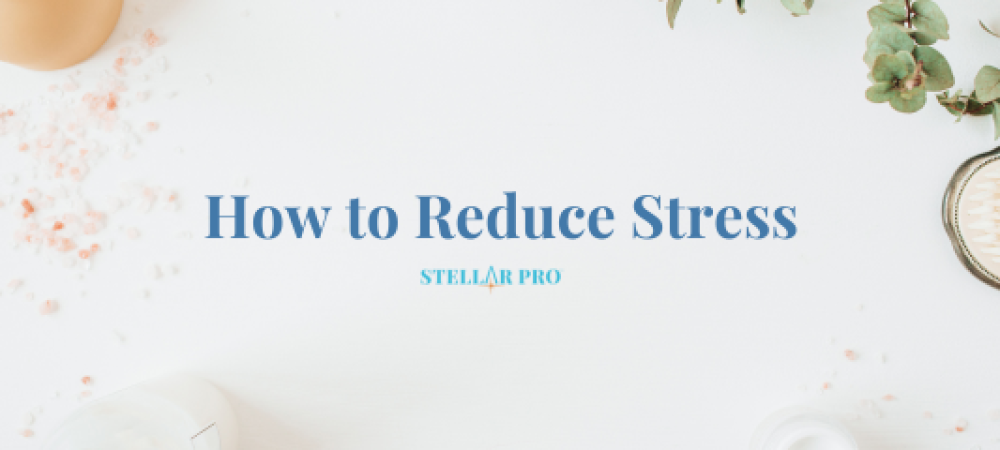Stress has become a prevalent part of modern life, impacting our well-being and overall quality of life. However, learning effective strategies to reduce stress is essential for promoting a healthier and more balanced lifestyle. This article aims to provide you with a comprehensive guide on how to reduce stress and unlock the physical, mental, and cognitive benefits associated with stress reduction. By understanding the nature of stress, identifying its signs, and implementing practical techniques, you can proactively manage stress and improve your overall well-being.
What is Stress?
Stress is a natural physiological and psychological response to demanding situations, whether they are real or perceived. It triggers a complex series of reactions in the body, preparing us for potential threats or challenges. According to the American Psychological Association, stress can cause physical and mental health problems, including headaches, trouble sleeping, and feeling overwhelmed. While some stress can be beneficial, these problems caused by chronic or excess stress can start to negatively interfere with our daily activities.
What are some common factors that contribute to stress?
There are many factors that contribute to stress. Some of the largest contributing factors are:
– Work-related pressures
– Financial difficulties
– Relationship challenges
– Major life transitions
– Personal expectations
– Noise
– Environmental stressors
Recognizing these common stressors can help us better understand and address their impact on our well-being. Of course, not all of these factors can be controlled. But what we can control is how we react to situations. Learning how to manage stress is one of these ways we can react more positively to stressful situations.
How Can I Identify Stress?
Stress is a normal reaction to a challenging situation. However, too much stress can lead to negative consequences, such as anxiety, depression, and chronic pain.
Identifying the signs of stress is crucial for taking proactive steps towards stress reduction. Common physical signs include headaches, muscle tension, fatigue, sleep disturbances, and changes in appetite.Emotional and behavioral signs may include irritability, anxiety, mood swings, social withdrawal, and decreased motivation or productivity.
By being mindful of these indicators, we can intervene early and implement effective stress management strategies.
Benefits of Reducing Stress
Improved physical health
Reducing stress offers numerous benefits for physical health. Chronic stress can contribute to various health conditions such as cardiovascular diseases, weakened immune system, digestive issues, and chronic pain. By implementing stress reduction techniques such as exercise, relaxation techniques, and proper self-care, we can lower the risk of these health issues, improve sleep quality, boost immune function, and promote overall physical well-being.
Improved mental health
Reducing stress is essential for a healthy mind and body. Chronic stress can contribute to anxiety, depression, and other mental health disorders. By reducing stress, we can enhance our emotional well-being, increase resilience, and improve coping mechanisms. Engaging in stress reduction techniques such as mindfulness, therapy, and stress management skills can promote a more positive mindset and emotional balance.
Improved cognitive performance
Reducing stress has a significant impact on cognitive function and performance. Chronic stress can impair memory, attention, concentration, and decision-making abilities. By implementing stress reduction techniques, we can enhance cognitive performance, boost creativity and problem-solving skills, and improve overall mental agility. Practices like meditation, regular exercise, and engaging in hobbies or activities that bring joy can have a positive influence on cognitive functioning.
Improved relationships
When it comes to reducing stress, it’s important to have healthy relationships with yourself and those around you. By improving your relationships, you’ll be able to handle stress more easily and efficiently.
When we are stressed, it can be challenging to communicate effectively, empathize with others, and manage conflicts constructively. By actively managing stress, we can approach relationships with a calmer and more balanced mindset, allowing us to be more present and attentive to the needs of our loved ones. Reduced stress levels enable us to engage in active listening, promote open and honest communication, and cultivate empathy and compassion. As we become more attuned to our own well-being, we can create a positive ripple effect within our relationships, fostering a supportive and nurturing environment where trust and intimacy can thrive.
Improved quality of life
As you have learned, chronic stress takes a toll on our physical health, mental well-being, and ability to enjoy life’s experiences. By actively managing stress, we can experience a range of benefits that contribute to a higher quality of life.
Physically, reduced stress levels can lead to improved sleep, increased energy, and a strengthened immune system.
Mentally, managing stress can promote greater emotional well-being, increased resilience, and enhanced coping skills. Moreover, reducing stress allows us to focus on self-care, engage in meaningful relationships, pursue hobbies and passions, and experience a greater sense of fulfillment and joy.
Ultimately, by prioritizing stress reduction, we create space for personal growth, self-discovery, and a more balanced and fulfilling life.
5 Tips for Reducing Stress
Tip 1: Find a Healthy Outlet
Whether it’s exercise, meditation, or another activity that you enjoy, find a way to get your body and mind moving. This will help to reduce the stress hormone cortisol and increase your mood. Some healthy outlets include:
– Yoga
– Deep breathing exercises
– Painting
– Crafting
– Talking a walk outside or simply sitting outside
– Engage in social activities
– Reading
– Gardening
– Cooking
These are just some of the healthy outlets you can explore. You may even find a new hobby! Finding the right outlets may require some exploration and personalization. What works for one person may not work for another, so it’s important to discover what brings you joy and a sense of relief. Experiment with different activities and strategies, and embrace those that resonate with you, contributing to a healthier and more balanced lifestyle.
Tip 2: Take a Break
When you’re feeling overwhelmed or stressed, it’s important to take a break. Get up and move around, do something that relaxes you, or take a few minutes to yourself to clear your head.
Whether it’s a short break during the day or a more extended period of rest, taking time for ourselves provides an opportunity to relax, unwind, and engage in activities that bring us joy. By intentionally creating space for leisure, hobbies, and self-care, we can alleviate the physical and mental strain that accumulates from stress. This break from stressors allows us to recharge our energy, improve our mood, and gain a fresh outlook on life’s challenges.
Tip 3: Practice Mindfulness
Stress is a common problem that can affect anyone. According to the American Psychological Association, 90% of people experience stress at some point in their lives. In fact, as of 2022 27% of adults reported that they were so stressed most days they could not function. And while it can be difficult to manage, there are ways to reduce stress and get back to your normal routine.
One way to reduce stress is to practice mindfulness. Mindfulness is simply paying attention to the present moment and accepting what is happening. By focusing on your surroundings, you can reduce the amount of stress that builds up.
You can also practice mindfulness through meditation or mindfulness exercises. Meditation allows you to focus on your thoughts and feelings, and can help you to better understand and manage stress. mindfulness exercises can be done anywhere, at any time, and can be used to reduce stress and improve your focus.
There are also several ways to reduce stress that don’t require any special equipment or training. These include:
– Taking a break: When you’re feeling stressed, taking a break can help you to clear your mind and regain control.
– Eating healthy: Eating a healthy diet can help to reduce the amount of stress hormones in your body.
– Exercising: Exercise can help to increase your levels of endorphins, which are natural mood-boosters.
– Connecting with friends and family: Spending time with loved ones can help to reduce stress levels and improve your mood.
Tip 4: Connect with Loved Ones
One of the best ways to reduce stress is to connect with loved ones. Whether it’s spending time with family or close friends, spending time with those you care about can help reduce the amount of stress you feel. By focusing on the good things in life, you’ll be able to reduce the amount of stress you feel and be more productive overall.
Tip 5: Talk to a Professional
Stress is a common problem that can be difficult to manage on your own. Stellar Pro is here to connect you with a qualified and knowledgeable professional who can help you manage your stress levels.
Having to wait to speak to a professional can be an added stressor in itself. By following these 5 tips and methods, you can start to reduce your stress levels today.
What do I do if my stress levels aren’t decreasing?
If you find that your stress levels aren’t decreasing despite your efforts, it’s important to take proactive steps to address the situation.
If you aren’t already, consider seeking professional help from a therapist or counselor who specializes in stress management. They can provide guidance, support, and evidence-based strategies tailored to your specific needs. If you are already seeing a professional for stress it may be time to find a new one after considering the other reasons why your stress levels aren’t decreasing.
Reevaluate your current stress reduction techniques and explore alternative approaches. It might be helpful to try new relaxation techniques, engage in different forms of physical activity, or experiment with mindfulness practices. Prioritize self-care and ensure you’re getting adequate sleep, maintaining a balanced diet, and engaging in activities that bring you joy. Don’t hesitate to reach out to your support network, whether it’s friends, family, or support groups, for additional emotional support.
Remember, managing stress is an ongoing process, and it’s okay to seek assistance when needed. By taking proactive steps and exploring new avenues, you can find effective strategies to reduce stress and improve your overall well-being.
Take Control of Your Stress Today
Reducing stress is a proactive and essential step towards achieving a healthier and more balanced life. Understanding stress, identifying its signs, and implementing effective stress reduction techniques, we can unlock the physical, mental, and cognitive benefits associated with stress reduction. Prioritizing self-care, engaging in relaxation practices, seeking support when needed, and adopting healthy coping mechanisms are all powerful strategies for managing stress. By incorporating stress reduction into our daily lives, we can enhance our overall well-being, improve mental health, and cultivate resilience in the face of life’s challenges.
By talking to a professional, you can get the most comprehensive and effective treatment for your stress. Stellar Pro has professionals ready to help you with stress-management.
Remember, reducing stress is a journey, and with commitment and practice, you can create a healthier and more harmonious relationship with stress.




